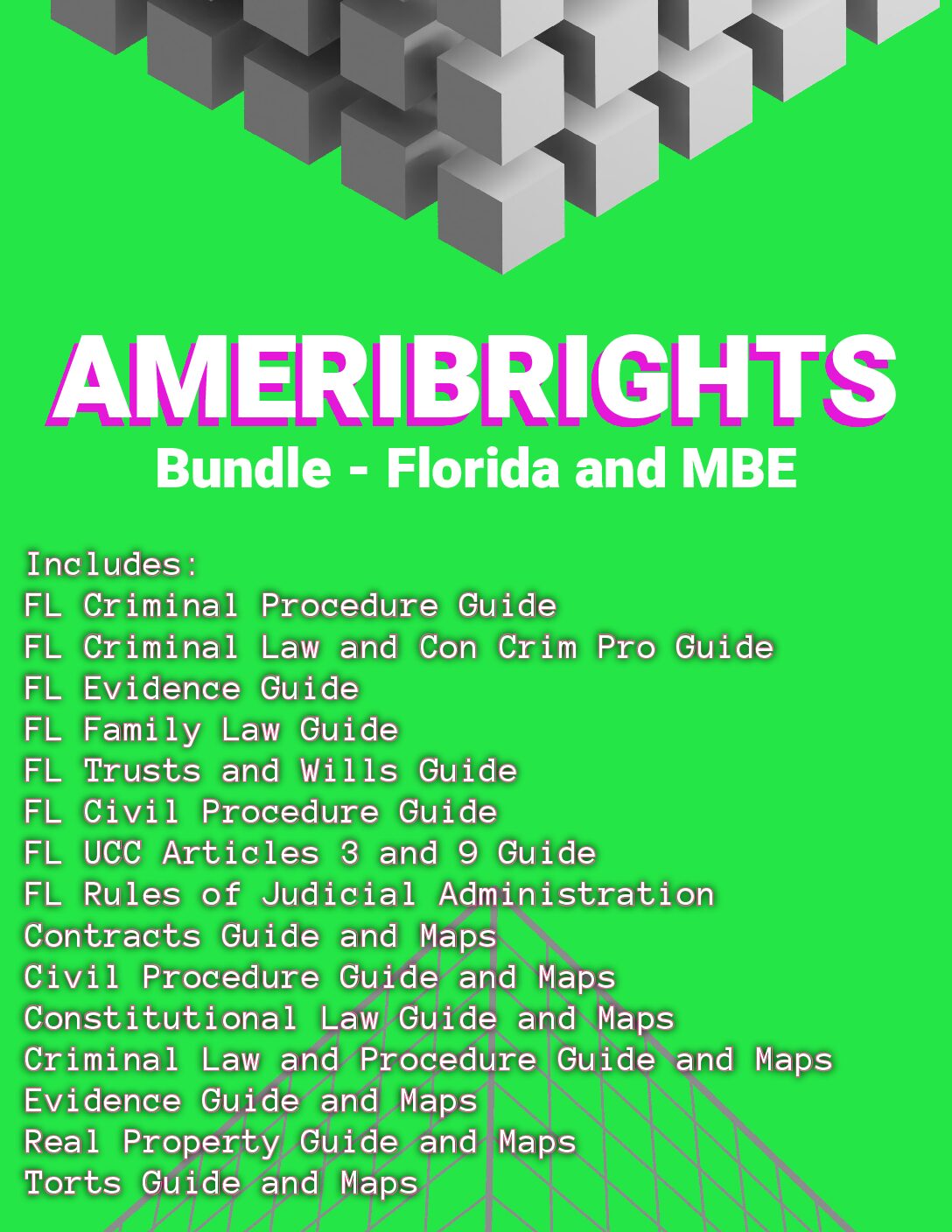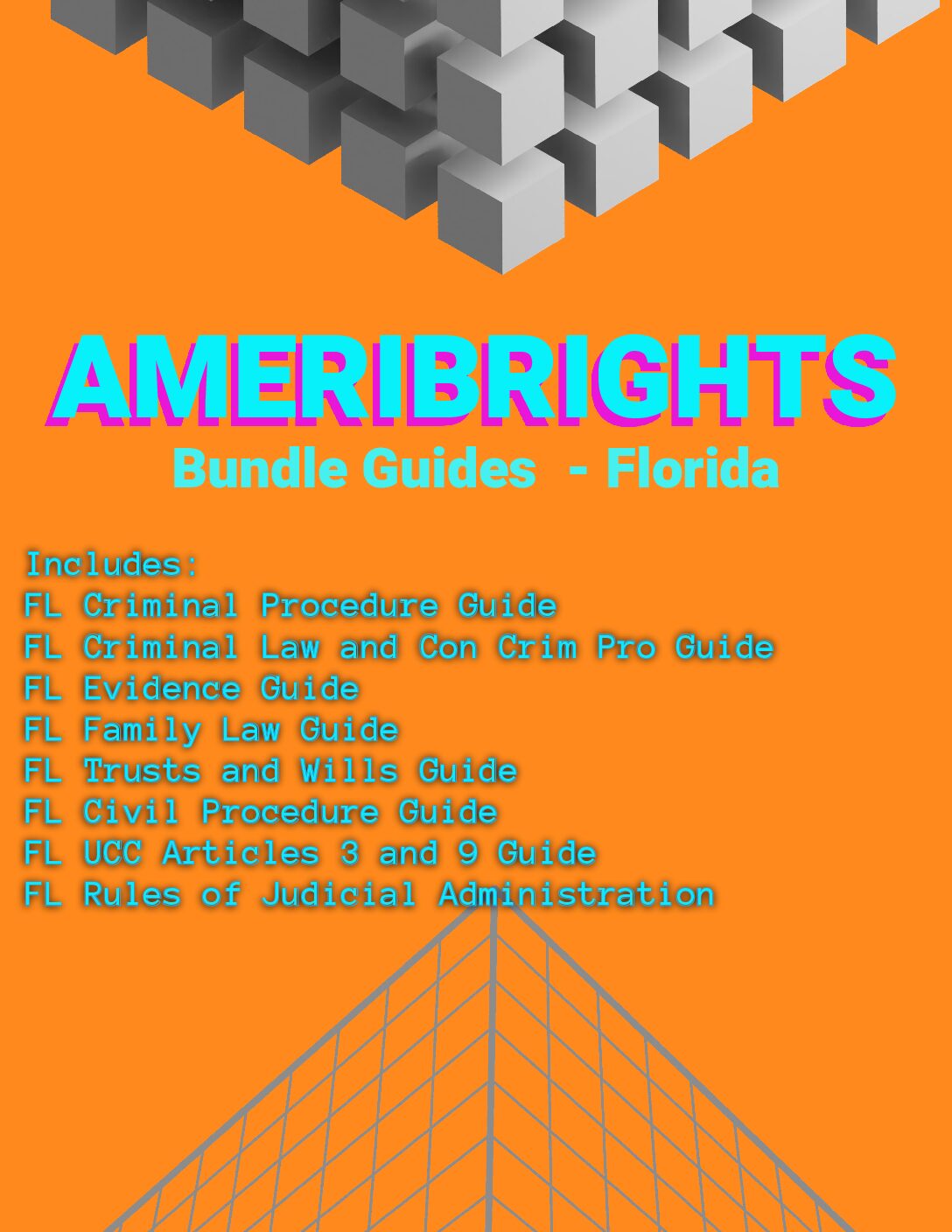Pass the Florida Bar Exam with Free Resources: Roadmap

In this article
Roadmap to Success: Conquering the FL Bar Exam
Imagine taking the driver’s seat in a bright yellow 1979 Volkswagen Transporter, just like the one from Little Miss Sunshine. We’re cruising down to Florida, where the air is thick with humidity, but the sun ahead promises a bright destination. This road trip is like your journey through the Florida bar exam—an adventure with its own challenges and rewards.
Preparing for the Florida bar exam is a significant milestone in your legal career. You can approach it with confidence, even if financial constraints make traditional prep courses seem out of reach. The key is to leverage free and low-cost resources effectively.
This article has a dual purpose: to provide you with a practical roadmap to excel on the Florida bar exam without breaking the bank, and to offer specific steps and actionable advice to develop your study game plan for the exam.
1. Evaluate Your Strengths and Weaknesses
Identifying your strengths and weaknesses is crucial to developing your study game plan. Here’s how to get started:
Consider Your Strengths: Consider whether you might be innately better at essays or multiple choice questions. Reflect on past exams and assignments to determine which formats you typically perform better in. Understanding your natural strengths allows you to build confidence and create a study plan that leverages your abilities.
Recognize Weaknesses: Pinpoint the areas of the bar exam that challenge you most, such as specific subjects like secured transactions or trusts, or even issues with timing. For instance, do you struggle to complete sections within the allotted time? Acknowledging these weaknesses enables you to allocate additional study time to improve your skills where needed.
Use your insights from evaluating strengths and weaknesses to guide your study schedule. For example, if essays are a weak spot, focus extra time on practicing essay questions and reviewing model answers. By addressing your weaknesses systematically, you can enhance your overall performance and build a well-rounded preparation strategy.
2. Identify Your Learning Style
Preferred Learning Methods
Everyone has unique ways of absorbing information, and understanding your preferred learning methods can significantly enhance your study efficiency. While the following list highlights common learning styles, it is by no means exhaustive. You may find that a combination of techniques works best for you.
Visual Learners: Visual learners grasp information better through images, diagrams, and other visual aids. For example, creating concept maps can help you understand how different ideas connect, while charts and diagrams can simplify complex legal processes or structures.
Auditory Learners: Auditory learners retain information more effectively through listening. This might involve utilizing audio recordings or podcasts on legal topics, or reading study materials aloud to reinforce concepts through hearing.
Kinesthetic Learners: Kinesthetic learners prefer hands-on experiences and physical engagement with the material. This includes practicing with mock exams and writing summaries, which help reinforce learning through active participation.
Reading/Writing Learners: Reading/writing learners benefit from engaging with text-based information. Creating detailed outlines and summarizing study materials in writing can enhance understanding and retention.
By identifying and incorporating your preferred learning style, you can tailor your study approach to match how you process information best, making your preparation more effective.
Why Does This Help Me?
Customization: Tailoring your study plan to your learning style can make your study sessions more effective. For example, if you’re a visual learner, integrating charts with written notes can enhance comprehension.
Regular Assessment: Periodically assess your progress and adjust your methods as needed. If a particular approach isn’t working, be flexible and try different techniques to maintain effectiveness.
Personalized Plan: Develop a study plan that aligns with your identified strengths and weaknesses, incorporating your preferred learning methods to maximize your preparation efforts.
3. Understand the Florida Bar Exam Structure and Content
Familiarize Yourself with the Format
Exam Sections: The Florida Bar Exam includes MBE multiple-choice questions and FL specific multiple-choice and essay questions, Understanding the format of each section will help you focus your study efforts where they are most needed.
Timing and Organization: Learn the time constraints and how each section is organized. For example, know how long you have for each essay and multiple-choice section, and practice managing your time effectively during practice exams.
Obtain Key Documents
Access Specifications: Download the test specifications from the Florida Bar Exam board’s website. These sixteen documents provide detailed information about the exam’s content and format.
Obtain the NCBE’s MBE Subject Matter Outline: The MBE Subject Matter Outline is a crucial resource for understanding the subjects and sub-areas tested on the Multistate Bar Examination (MBE). This outline breaks down the specific topics covered in each of the MBE subjects—such as Contracts, Civil Procedure, Real Property, Torts, Constitutional Law, Criminal Law and Procedure, and Evidence—providing a comprehensive guide to what you need to focus on. By familiarizing yourself with this outline, you can better prioritize your study efforts and ensure that you cover all essential areas.
Review Guidelines: Examine any guidelines or recommendations provided by the Florida Board of Bar Examiners and NCBE to understand what is expected of you.
4. Collect Essential Study Materials and Resources and Attack
Gathering the right study materials is crucial for building a solid foundation in your bar exam preparation. Just as we wouldn’t embark on our road trip without a dependable map and supplies, preparing with the right resources will help you navigate the complexities of the exam with confidence. Here’s how you can effectively collect and utilize study materials tailored to your needs:
Utilize Free Legal Resources
Online Databases: Platforms like Casetext.com, The FL Senate, and Online Sunshine offer free access to up-to-date laws, statutes, and legal information. Use these resources to find relevant texts and current updates. Be sure to consult the test specifications and MBE Subject Matter Outline to guide your research and focus on the areas that matter most.
Organize Your Notes: Arrange your notes in a way that enhances your comprehension and retention. Create clear summaries, highlight key points, and use bullet points or charts to simplify complex information. Tailor your note-taking methods to your preferred learning style, ensuring that your approach is aligned with how you best absorb and retain information.
By looking up information yourself and writing it down, you foster active reading and critical thinking. This method also ensures that you’re working with the most current laws and statutes, which is crucial given recent significant changes in areas like family law and torts in Florida. Relying too heavily on outdated outlines or flashcards can be misleading, so stay updated and verify the accuracy of your resources.
Leverage Free Flashcards
Quizlet Flashcards: Access free flashcards on Quizlet that have been created by other bar exam candidates. These can be a valuable tool for reviewing and memorizing key legal concepts and terms.
Anki Flashcards: Anki is another powerful free tool for flashcard-based studying. Unlike traditional flashcards, Anki uses spaced repetition to help you retain information more effectively. You can find pre-made decks relevant to the bar exam or create your own custom decks to focus on areas where you need additional practice.
Create Your Own Flashcards: If existing flashcards don’t cover all the material you need, consider creating your own to focus on areas where you need additional practice. This ensures that the content is tailored to your specific needs and keeps your study sessions productive.
Caution: Be careful not to overly rely on flashcards, especially those created by others that may be outdated. Ensure your study materials are current and relevant to your exam preparation.
Explore Library Resources
Law School Libraries: Don’t assume that your law school library lacks the resources you need or that they won’t assist you, even if you haven’t been there in years. Law school libraries are often equipped with study guides, textbooks, and other materials tailored for bar exam preparation. You’ll find the staff is supportive and committed to helping you succeed.
Public Libraries: Check out local public libraries for additional study materials, including textbooks and practice guides. Many public libraries offer interlibrary loan services if they don’t have specific resources on-site. You can often browse their inventory and check out available materials online through their website, which can save you time and help you find what you need more efficiently.
Find Free Subject Matter Outlines
Law School Outlines: Obtain up-to-date subject matter outlines from your law school for as many of the tested subjects as possible. These outlines offer a structured overview of key topics and can help you stay organized. If you’re unsure how to access these resources, contact Student Affairs (their phone number should be on your law school’s homepage). If they can’t assist you, consider reaching out to student groups like LALSA or BLSA for help (don’t worry, no one will mind if you haven’t participated in the group).
Update and Customize: Review and update these outlines as needed, incorporating any additional information from your study resources and practice exams. Tailoring these outlines to your study needs will ensure they are as useful and relevant as possible.
Use Free Online Content
YouTube Videos: Take advantage of free bar prep videos available on YouTube, such as those from Ibis Prep. Andrew from Ibis Prep does a great job of breaking down complex legal concepts into understandable segments, making your study sessions more interactive and engaging.
Review Past Essays
Exam Board Study Guides: Access previous essay questions available through the Florida Board of Bar Examiners website, where they are referred to as study guides. Analyzing these questions can help you understand commonly tested topics and improve your essay writing skills.
Practice Writing: Regularly practice writing essays based on past questions to refine your ability to articulate legal arguments and apply legal principles effectively. If you are already strong in this area, you may not need as much practice, but it’s still beneficial to maintain your skills.
Find Affordable Prep Books and Study Guides
Look for Older Editions: Search for older editions of study guides and prep books, such as Strategies and Tactics for the MBE by Emanuel Bar Review, on platforms like Amazon or AbeBooks. Older editions are often available at a lower cost and can still be valuable for your preparation.
5. Engage with Study Groups and Online Communities for Support
Engage with Online Forums
Join Test Taker Communities: Participate in online forums and discussion groups dedicated to bar exam preparation. Websites like Reddit and Top Law Schools can be valuable for asking questions and seeking advice.
Ask and Answer Questions: Use these forums to get answers to your specific questions, share your experiences, and offer support to others. Engaging in discussions can provide new perspectives and clarify difficult concepts.
Start or Join a Study Group
Find Existing Groups: Look for study groups in your area, such as through local law schools, bar associations, or online networks. Joining a group can provide structure and camaraderie.
Create Your Own Group: If no study groups are available, consider starting your own. Organize regular meetings, set goals, and collaborate with others who are also preparing for the bar exam. You can create your group for free through Meetup and promote it through Linkedin.
Collaborate and Motivate: Use study groups to exchange tips, discuss challenging topics, and practice answering questions together. This collaborative approach can enhance understanding and keep you motivated throughout your study period.
Caution: While study groups can offer valuable support and motivation, it’s important to approach them with caution. Don’t assume that everyone involved is calm and collected; many people in study groups are likely experiencing their own stress and anxiety about the exam. Collaborating with others, especially those you don’t know well, can sometimes lead to additional pressure or distractions. Ensure that your study group environment remains supportive and focused. Clear communication and understanding each member’s needs can help mitigate potential stress and enhance the effectiveness of your group study sessions.
6. Master Exam Techniques with Practice and Repetition
Practice Multiple-Choice Questions
Familiarize Yourself with the Format: Work through practice multiple-choice questions to get used to the exam’s format and question styles. This will help you become more comfortable with the types of questions you’ll encounter. You can access free sample multiple-choice questions through the FL study guides and NCBE MBE sample test questions.
While this roadmap focuses on free and low-cost resources, investing in additional practice questions is highly beneficial. For this reason, consider spending $100 on the MBE Bar Exam Value Pack, which includes 625 questions, to further enhance your preparation
Build Confidence: Regular practice with multiple-choice questions will help you identify patterns, improve your answering speed, and build confidence in your ability to tackle these questions effectively.
Review and Analyze: After completing practice questions, review your answers thoroughly. Analyze any mistakes to understand where you went wrong and adjust your study strategy accordingly. Approach this review process with care—like savoring a fine wine. Take your time to understand why each incorrect answer was wrong, and also reflect on your correct answers to reinforce your understanding. This detailed analysis will be more beneficial than simply answering questions, ensuring you truly grasp the material.
Practice Previous Essays
Review Past Essay Questions: Go through previously administered essay questions. This will help you understand common themes and frequently tested topics.
Practice Writing Essays: Write out responses to past essay questions to practice articulating your knowledge under timed conditions. Focus on structuring your answers clearly and addressing all parts of the question.
Seek Feedback: If possible, have your practice essays reviewed by peers, mentors, or professors to get constructive feedback. This can help you refine your writing skills and improve your performance on the actual exam.
Conclusion: Maximizing Your Preparation for the Florida Bar Exam
Getting back to our road trip analogy, preparing for the Florida bar exam is like planning an epic road trip. With the right resources and a clear route, you can make the trip with confidence. By utilizing free resources, practicing effectively, and staying adaptable, you’ll be well-equipped to reach your destination. Keep your eyes on the road, stay focused on your goals, and you’ll navigate your way to success on the Florida bar exam.
Next Steps (Optional, When You’re Ready)
Free Articles and Tools to Keep You Moving
- Why Conventional Bar Review Programs Don’t Work
- MBE Self-Assessment
- Succeed on the FL Bar Exam: Topics, Scoring and More
- Bar Exam Memory Tips: Memorization Made Easy
- Most Tested Contracts Areas on FL Bar Exam: Part One
If you reach a point where you want something more structured, concise, and Florida-focused – our guides are designed to plug into the roadmap above.
Optional Study Guides (For When You Want Structure)
-
Bar Exam Preparation
Florida and MBE Ultimate Study Guide Bundle
$875.00Original price was: $875.00.$599.00Current price is: $599.00. Add to cart -
Bar Exam Preparation
The Ultimate Florida Bar Exam Study Guide Bundle
$392.00Original price was: $392.00.$299.00Current price is: $299.00. Add to cart



